Category / Events
Enhance your Impact in Preparation for the REF
The Research and Knowledge Exchange Office (RKEO) through the Research & Knowledge Exchange Development Framework (RKEDF) has a number of workshops in the coming months to assist you in developing and enhancing the impact that you can make with your research, with particular reference to the REF.
- Wednesday 21st March 2018 – Developing impact case studies for your REF panel: the good, bad, and ugly Panel A (UoAs 1 – 6 only) – 2.5 hour session (1.30pm – 4pm) Talbot
- Wednesday 18th April 2018 – Developing impact case studies for your REF panel: the good, bad, and ugly Panel B (UoAs 7 – 12 only) – 2.5 hour session (1.30pm – 4pm) Talbot
- Tuesday 24th April 2018 – Developing impact case studies for your REF panel: the good, bad, and ugly Panel C (UoAs 13 – 24 only) – 2.5 hour session (1.30pm – 4pm) Talbot
- Wednesday 2nd May 2018 – Developing impact case studies for your REF panel: the good, bad, and ugly Panel D (UoAs 25 – 34 only) – 2.5 hour session (1.30pm – 4pm) Talbot
- Wednesday 16th May 2018 – Introducing and evidencing research impact: the basics – 2 hour session (2pm – 4pm) Talbot
- Friday 18th May 2018 – Preparing impact case studies for the REF: Developing a REF case – 3 hour session (1pm – 4pm) Talbot (this workshop will be repeated on 24/07/18)
Please follow the links above to find out more and to book. You will then receive a meeting request giving the room location. Many of these events have input from external presenters; please ensure that you are in the room and ready to commence at the given start time.
If you would like to discuss impact outside these workshops, please contact the RKEO Knowledge and Impact Team.
Applying for Funding from the NIHR – An Overview of the Schemes Available

As part of the Research and Knowledge Exchange Development Framework, RKEO are holding a session on an Overview of NIHR Funding Schemes Available.
This session will provide detailed information about NIHR’s funding programmes including the Public Health Research, Invention for Innovation, Health Technology Assessment, Efficacy and Mechanism Evaluation, and Health Services and Delivery Research schemes. The session will cover the remits, application processes and tips for success to these programmes.
We are delighted to welcome the following speakers:
- Dr Ruth Nebauer, Assistant Director of i4i programme
- Andrew Cook, Consultant in Public Health Medicine and Fellow in Health Technology Assessment
Date: 16th May 2018
Time: 12-2pm
Venue: Talbot Campus
The session is open to all academics, researchers and clinicians who have an interest in applying to the NIHR.
Please book your space through Eventbrite.
The NIHR is the UK’s major funder of applied health research. All of the research it funds works towards improving the health and wealth of the nation.
BU’s ECR Network – Come to the pre-launch event on 25th April
BU will be launching a new network for Early Career Researchers later in 2018
If you are an ECR* or interested in the development of ECRs at BU, please sign up to attend this pre-launch meeting to discuss your ideas and expectation of this new network. Priority will be given to ECRs in the first instance, but whatever your role at BU, please sign up as your input will be most welcome.
This session will take place at Talbot Campus on Wednesday, 25th April, from 13:00 – 15:00, with refreshments, but not lunch, provided. Please feel free to bring your lunch.
BU Staff – Reserve your place now!
*an ECR, in this case, is defined as someone who started their research career on or after 1 August 2013. This is the point at which they held a contract of employment of 0.2 FTE or greater, which included a primary employment function of undertaking ‘research’ or ‘teaching and research’, with any HE or other organisation, whether in the UK or overseas.
BASES Student Conference 2018 – Day 2
The second day of the conference was open by Professor Graeme Close & Mr Michael Naylor with a lecture on “nutritional strategies for competition and performance.”
Follow up with the oral presentations and free communications. I found particular interest in the research of Mr Chynkiamis on the effect of VitaBREATHE on exercise tolerance in COPD patients and in the feasibility study of Miss Thomas on the effect of 10 weeks postural stability exercise on balance in elderly care homes residents. I am glad that I had the chance to discuss with Miss Thomas part of the outcomes and the methods she used for my undergoing research on falls prevention.
Later in the afternoon, I had the opportunity to talk more about inspiratory muscle training (IMT) with Mr Hopkins and Mr Gibb who are looking at the effect of IMT on time trial performance in trained cyclists.
After, the workshop “psychological challenges for physical activity uptake” by Dr Melissa Fothergill intrigued me as I believe it is a crucial matter of discussion, especially if working with frail populations.
The final motivational lecture titled “creating your future” by Dr Steve Ingham closed the 2018 BASES student conference with tips and advice on how to progress in the sport science carriers.
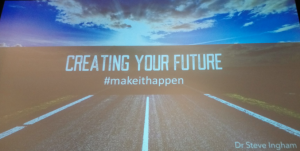
Concluding, it was a great experience as not only I had the chance to improve my network and meet peers with a similar background as mine but most important because in these two days I had increased my awareness and motivations.
A special thanks go to my supervisors Professor Alison McConnell, Dr James Gavin and Professor Tom Wainwright who pointed me at this event.
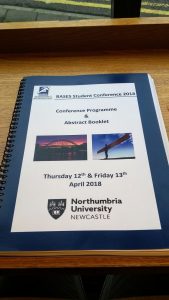
The conference is now over, and by the time you read this post, I will be already on my way back to Bournemouth.
Thank you for reading,
Francesco.
#TalkBU on Thursday – Coping with stress in changing health behaviours
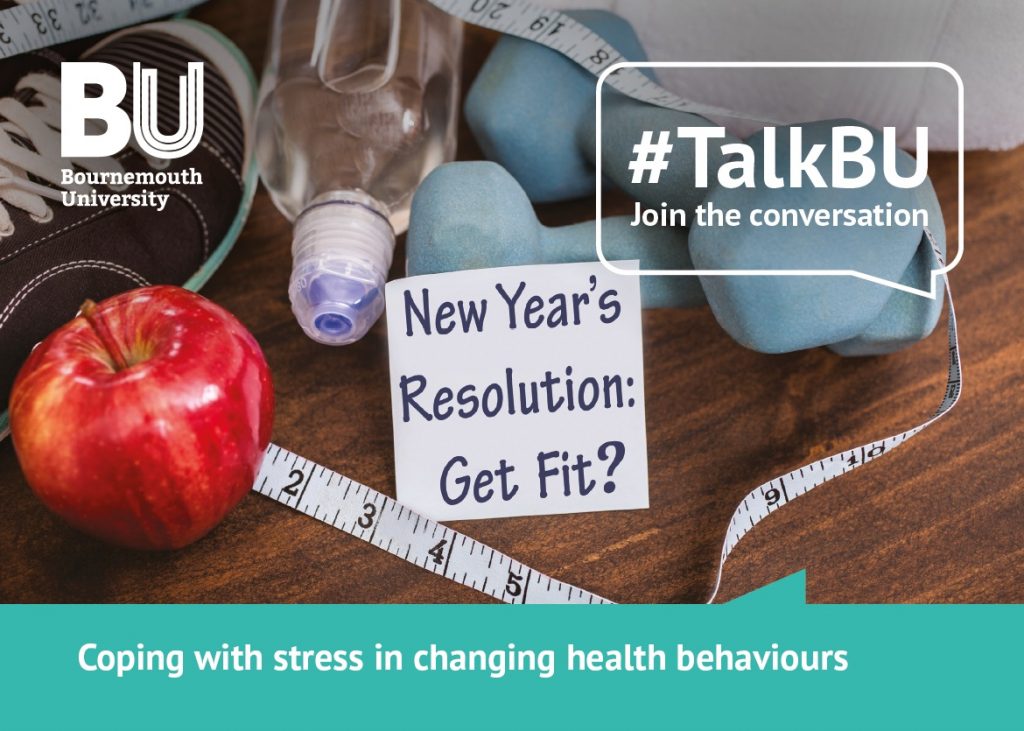
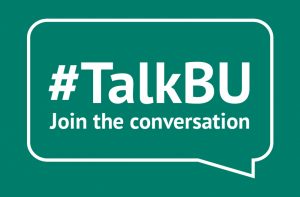 #TalkBU is a monthly lunchtime seminar on Talbot Campus, open to all students and staff at Bournemouth University and free to attend. Come along to learn, discuss and engage in a 20-30 minute presentation by an academic or guest speaker talking about their research and findings, with a Q&A to finish.
#TalkBU is a monthly lunchtime seminar on Talbot Campus, open to all students and staff at Bournemouth University and free to attend. Come along to learn, discuss and engage in a 20-30 minute presentation by an academic or guest speaker talking about their research and findings, with a Q&A to finish.
Often our New Year resolutions involve changing unhealthy habits in the coming year. But how many of us have actually managed to change our unhealthy lifestyle and maintained it? Changes can be stressful, but how one manages the change can potentially ease that stress and make the change more achievable, which can potentially impact our physical and psychological well-being.
In this talk, Dr Fiona Ling will discuss her research that centres around physical activity behaviour change, and the extended implications on changing other health habits and public health promotions in order to encourage a healthy lifestyle.
When: Thursday 19 April at 1 – 2pm
Where: Room FG04, Fusion Building
Register here to attend
Click here to find out more about our future and previous #TalkBU events.
BASES Student Conference 2018 – Day 1
Every year the British Association of Sport and Exercise Sciences (BASES) organise the student conference, as an opportunity to discuss and exchange views on contemporary issues in sport and exercise science (including clinical exercise, biomechanics, performance, physiology and psychology).
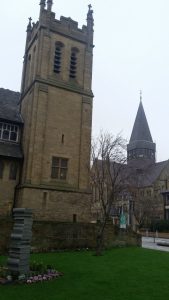
This year the venue is Northumbria University, and the programme includes international speakers from the applied and research worlds.
The conference started with the lecture “not all that can be counted counts – why we should listen to Einstein?” by Mrs Esme Matthew & Miss Laura Needham, who brought they experience as members of English Institute of Sport (EIS) and their work with the UK Olympic team.
It was particularly inspiring to see how the lab works moved into the field of applied science and the relationship that bound researchers and athletes.
Next, after the usual coffè break, it was the time of free communications and oral presentation, where I had the opportunity to attend to the following:
Mr Dray, and his work on the effect of high-intensity interval training on obese men.
Mr Parmar about the difference in maximal aerobic speed in filed-based tests compared to laboratory-based treadmill tests.
Miss McNulty on low-volume, high-intensity priming activity.
Miss White and his work on plyometric training team gym gymnasts.
Mr Addey about the effect of unilateral strength training on recreation runners.
Then, it was the time for poster exhibition, where I presented my research titled: “The effects of 8 weeks of inspiratory muscle training (IMT) on the balance of healthy older people: a randomised, double-blind, placebo controlled trial”.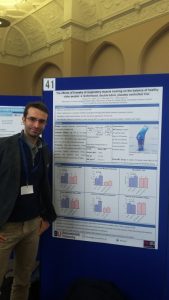
I was excited, and most important the comments and feedback collected satisfied my expectations.
In particularly I had the chance to discuss IMT with a couple of students from Portsmouth, that today are going to present their works on IMT in athletes.
I also met Mr Tahmosybayat, and his research on 6 weeks of exergaming compare to OTAGO exercise training in healthy older adults and we discussed the outcomes, methods and methodologies of our research.
After there was a range of workshops available from which I chose “a demonstration of how exergaming is used to improve postural control” by Dr Gill Barry at the sport central physiology lab.
Here members of the lab staff showed us their facilities in particular exergame, Kinect, and Biodex BioSway and how they measure balance in frail populations.
At the end of the conference, there was still time for the lectures on “contemporary recovery: translating research to application” by Dr Jonathan Leeder, Dr Jess Hill & Mr Luke Gupta. Who discussed how to optimising recovery following exercises, the efficacy of compression garments on recovery from strenuous exercises and sleep management in elite sports.
Then we moved to the home of Newcastle United FC, where before dinner we had a motivational/inspiring speech by Mr Nick Grantham specialist in athletic preparation, combat sports and strength training.
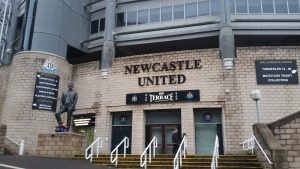
Concluding, it was a very productive day and I am looking toward tomorrow where there are going to be more lectures, oral presentations and posters oriented on frail populations and nutrition.
If you would like to follow the conference live use the Twitter Wall: http://bases2018.tweetwally.com/
Thank you for reading.
Francesco.
Call for Applications – Three Minute Thesis Competition
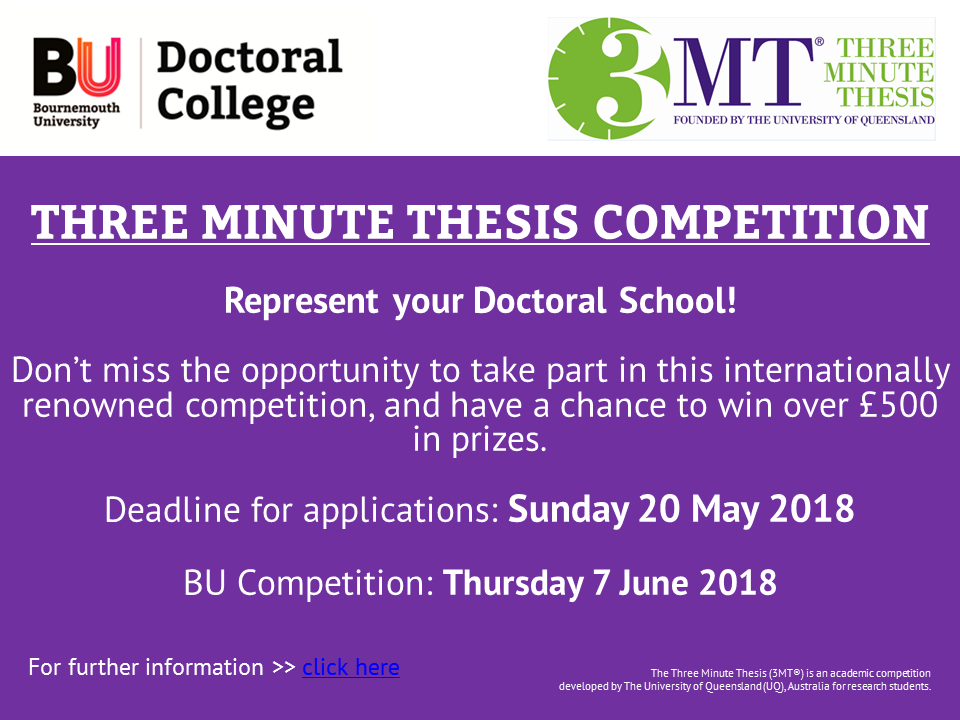
If you have any questions please contact Natalie or Clare: pgrskillsdevelopment@bournemouth.ac.uk.
#BU OUTDOORS is getting ready
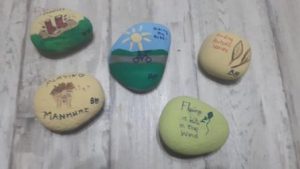 An exciting new research project will be launched this Saturday and the team is getting ready. Last November during the ESRC Festival young people told us what they liked doing outdoors. Next Saturday the research team from across BU will be releasing the top ten favourite things that young people enjoyed outdoors on a rock drop in partnership with Bournemouth Rocks. Young people can find out the results of our research and help develop our study by logging their finds and sharing their use of green space with the research team – Dr Holly Crossen-White, Dr Nathan Farrell and Dr Angela Turner-Wilson. The Rock Drop site will be released on Friday on social media (more…)
An exciting new research project will be launched this Saturday and the team is getting ready. Last November during the ESRC Festival young people told us what they liked doing outdoors. Next Saturday the research team from across BU will be releasing the top ten favourite things that young people enjoyed outdoors on a rock drop in partnership with Bournemouth Rocks. Young people can find out the results of our research and help develop our study by logging their finds and sharing their use of green space with the research team – Dr Holly Crossen-White, Dr Nathan Farrell and Dr Angela Turner-Wilson. The Rock Drop site will be released on Friday on social media (more…)
Board the Pre-Award Omnibus on 18th April 2018
Do you wonder how best to engage with pre-award processes at BU?
Are research application finances a bit of a mystery?
Does the costing side of your research application deter you from applying?
Are you not quite sure where to start?
If so, then come along to these sessions on Wednesday, 18th April at Talbot Campus:
- Getting started on applying for research funding (10:30 – 11:30)
- Pre-award Finances (12:00 – 13:00)
- BU processes for applying for research funding (13:30 – 14:30)
- Quality approvals – for those who are, or wish to be, a designated Faculty and UET Activity Quality/Peer reviewer (15:00 – 16:00)
Please follow the links above to reserve your place at as many of these events as you are able to attend. You will then receive a meeting request confirming the location of each session.
If you need help outside these workshops, please contact relevant member of the Funding Development Team in the Research & Knowledge Exchange Office.
Reminder: Wednesday 11th April – Guest Researcher in Ageing, Human Rights, Disability and Inclusion
On the 11th April Dr Andrea Padilla-Munoz from the University of Rosario, Bogota, Colombia will be visiting Bournemouth University. Andrea is a qualified lawyer and academic with an interest in ageing, human rights, disability and inclusion.
During her visit, she is keen to meet with other BU academics to explore potential future collaborations. To support this, I will be hosting a workshop on the 11th April in the Fusion Building, F111 from 11am-1pm, where Andrea will provide an overview of her research. There will also be time to discuss future research ideas with her over tea and coffee.
If you are interested in attending please let me know, so I have an idea of numbers and can book refreshments accordingly. Alternatively, if you are unable to make the workshop but would like to meet with Andrea, let me know and we can arrange something.
Email: bhicks@bournemouth.ac.uk
10th Annual Postgraduate Research Conference Winner Profiles
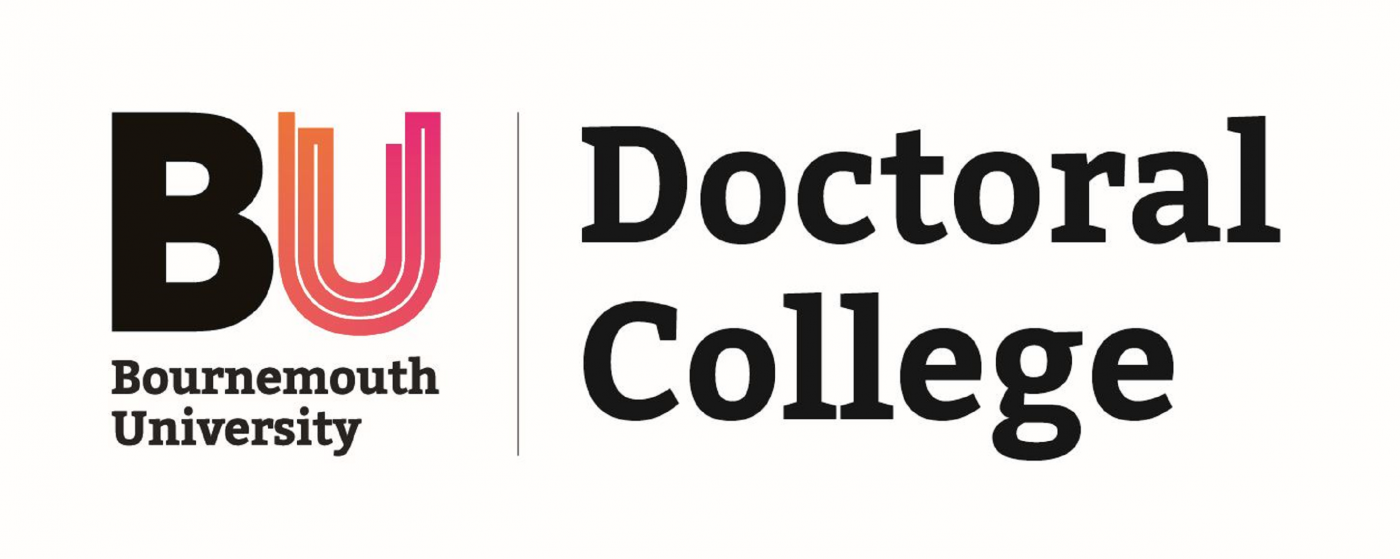
On Wednesday 7 March 2018 the Doctoral College hosted the 10th Annual Postgraduate Research Conference which brought together and recognised the excellence of BU’s postgraduate research.
Meet this year’s winners:
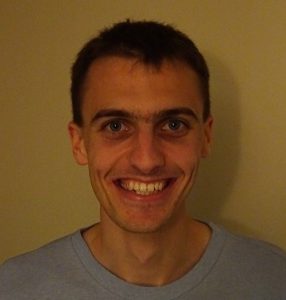 |
Mark Stevens, Faculty of Management
Research topic: A social identity approach to understanding physical activity. Why I chose this research topic: As a regular runner, and someone who engages in a lot of physical activity myself, I am a strong believer that being active should be a priority for us all. Having also seen first hand the issues being inactive can cause, and being aware of the scale of the inactivity crisis we are facing on a global scale, I am passionate about understanding the factors that influence people’s physical activity levels and devising effective ways of getting—and keeping—people more active. Example of how research at BU has changed things for me: My PhD has given me the opportunity to learn a wide variety of new skills and develop my existing skills in several areas. For example, working closely with my supervisors, collaborating with researchers around the world, and working to publish journal articles has helped me learn several advanced methods of statistical analysis and develop my academic writing. Quick quote: Following on the physical activity theme, but also a good thought about working hard: “Nobody ever drowned in their own sweat!” |
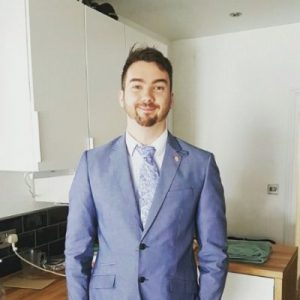 |
Stephen Allard, Faculty of Media & Communication
Research topic: When does Page become Stage: Exploring Evolving Poetic Practices in Digital Spaces. Why I chose this topic: The growth and popularity of social media sites, especially within the last decade, has arguably forever changed the way that we imagine, interact with, and relate to, each other. With increasing cynicism towards these new social worlds of words, with terms such as ‘fake news’ ingrained in the public consciousness, I am fascinated by how poets might add their voices to these new social frontiers. If a search for truth about online interaction is currently only revealing something increasingly seen as fake, then can perhaps poets, using something fictional, reveal new truths about ourselves, and each other, online? Example of how research at BU has changed things for me: Bournemouth University has a rich, diverse, and interactive postgraduate research community, that actually feels like a community. Through events, workshops, and talks, I have gained the opportunity to work with a range of talented and passionate researchers, working across many fields and in many disciplines. This has not only pushed the boundaries and possibilities of my own research, but also opened up new opportunities, and completely new ways of thinking about the postgraduate experience. Quick quote: Oscar Wilde: ‘Everything in moderation, including moderation’ |
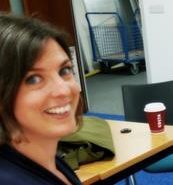 |
Louise Oliver, Faculty of Health & Social Sciences
Research topic: Family Narratives of Child-to-Parent Violence and Abuse: Lifting the Veil of Secrecy Why I chose this topic: I have worked within Children’s Social Care for over a decade, with a focus on working with family violence and abuse. As part of my practice, it became apparent that there was a dearth of research about children who are controlling, aggressive and/or violent towards their parents, as well as limited targeted support for families experiencing child-to-parent violence and abuse. This motivated me to study this form of family violence and abuse in order to further prevent, intervene and support families experiencing this. Example of how research at BU has changed things for me: This research has helped in many ways, it has helped develop my practice by improving my theoretical understanding of family violence and abuse, and I have been able to incorporate this within my practice. I am also in a position that I am able to offer advice and guidance to my colleagues. Quick quote: “…a moment of silence, a question without answer, provokes a breach without reconciliation where the world is forced to question itself” (Foucault 1967) |
| Amal Musa Almoualed, Faculty of Media & Communication
Research topic: Saudi Women Journalists—An Exploration of Their Role and Practice in an Age of National Transformation Why I chose this topic: The advancement, development and empowerment of women is a lifelong interest of mine, something I wish to study and achieve in my personal and professional life. This motivated me to approach my research from both sides—‘journalism’ and ‘women’—in order to combine my joint passions for journalism research and the advancement of women. Example of how research at BU has changed things for me: Being a researcher in Women and Journalism at Bournemouth University has developed my personal and professional skills and exposed me to other cultures. This has helped broaden my horizons and also helps me communicate more effectively with professionals and colleagues from different cultures. Quick quote: These are two of my own quotes, which I always recall whenever I need to encourage myself to continue pursuing my dreams: ‘Being a woman means to have patience, determination, enthusiasm and confidence as you challenge any barriers that limit your success in your personal and professional life.’ ‘Some women seek to be pretty and work hard to remain pretty their entire life; however, I believe my prettiness is determined by being mindful, ambitious, and successful in achieving my goals.’ |
|
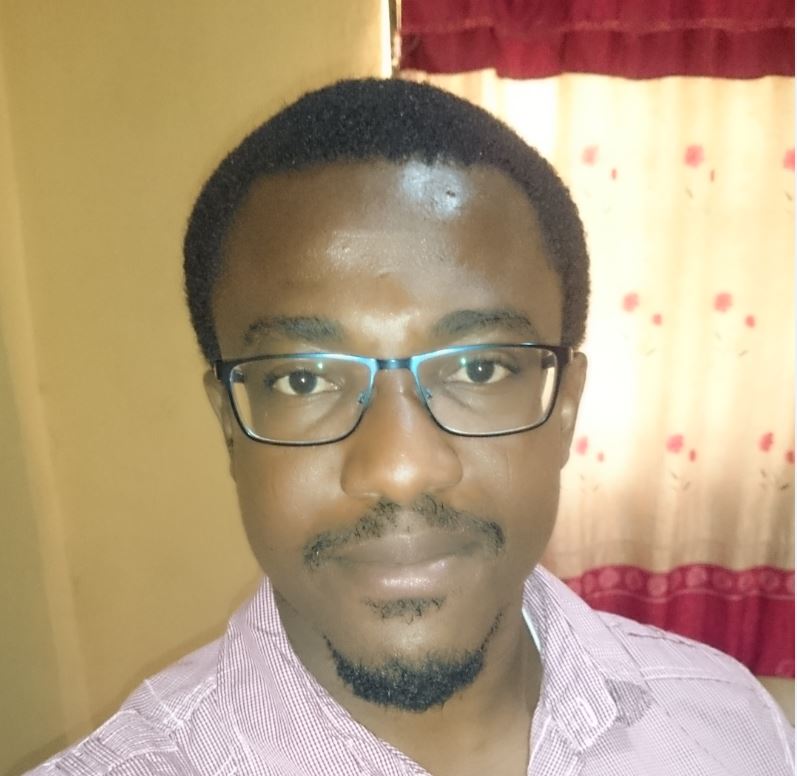 |
Ejike T. Ezeh, Faculty of Health & Social Sciences
Research topic: Shared decision-making: investigating the potential of an interactive, web-based information tool to support treatment choice of people with advanced pancreatic cancer Why I chose this topic: I have always been interested in the impact of information technology in healthcare, and when the opportunity became available, I applied and was selected. Also, being able to help people in making important decisions about their health is a rewarding experience for me. Example of how research at BU has changed things for me: Research has taught me that you have to be very thorough and systematic even in the most basic things in life. Someone may build on your work in the future. I am more careful in my utterances as well. There must be sufficient evidence to support them. Quick quote: When the going gets extremely tough, then you are close to a breakthrough. |
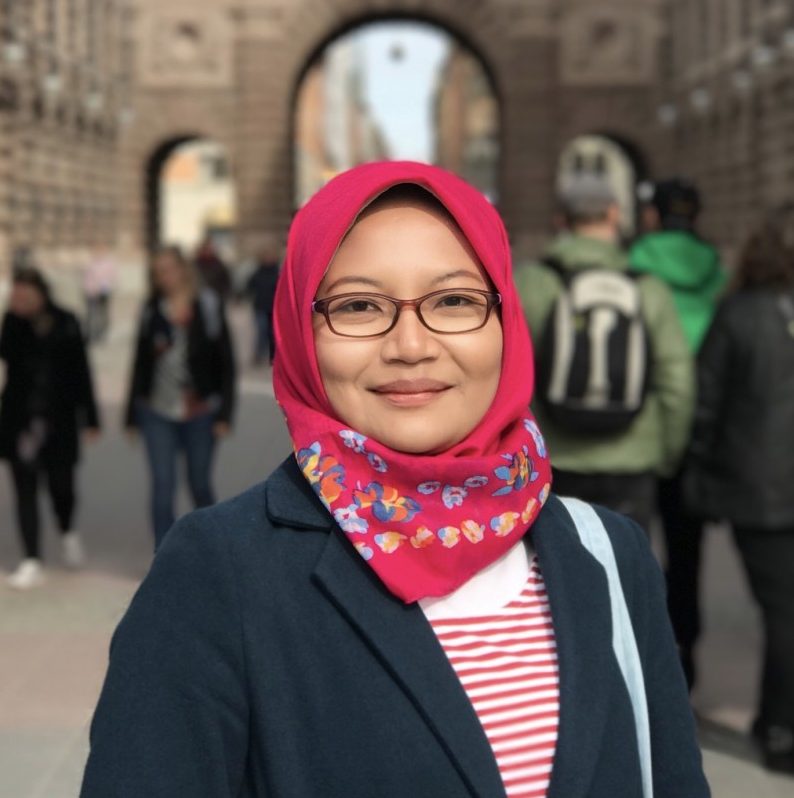 |
Nurist Surayya Ulfa, Faculty of Media & Communication
Research topic: I am undertaking a PhD on ‘the digital virtual consumption practices and commercial enculturation among Indonesian Muslim girls’. In particular, the work aims to account for how Indonesian Muslim girls’ engagement with DVC in Girls games shapes both their literacy of and desire for Western consumer culture and the role of Islam in the process. By doing this, enables me to shed light on the interplay between market and religion under the consumer culture theory traditions. Why I chose this topic: Since 2009, as an academia in Diponegoro University Indonesia, I have been interested in studying children and marketing communication themes in Indonesia. My PhD problematization derived from my previous finding on Muslim children engagements with local and global media practices. Example of how research at BU has changed things for me: Undertaking PhD in Bournemouth University is a journey that I have thoroughly enjoyed so far. The reliable and supportive supervisory team is obviously the best part of my PhD journey. By way of their guidance, I have learned a lot about my research area and had valuable opportunities to develop myself. |
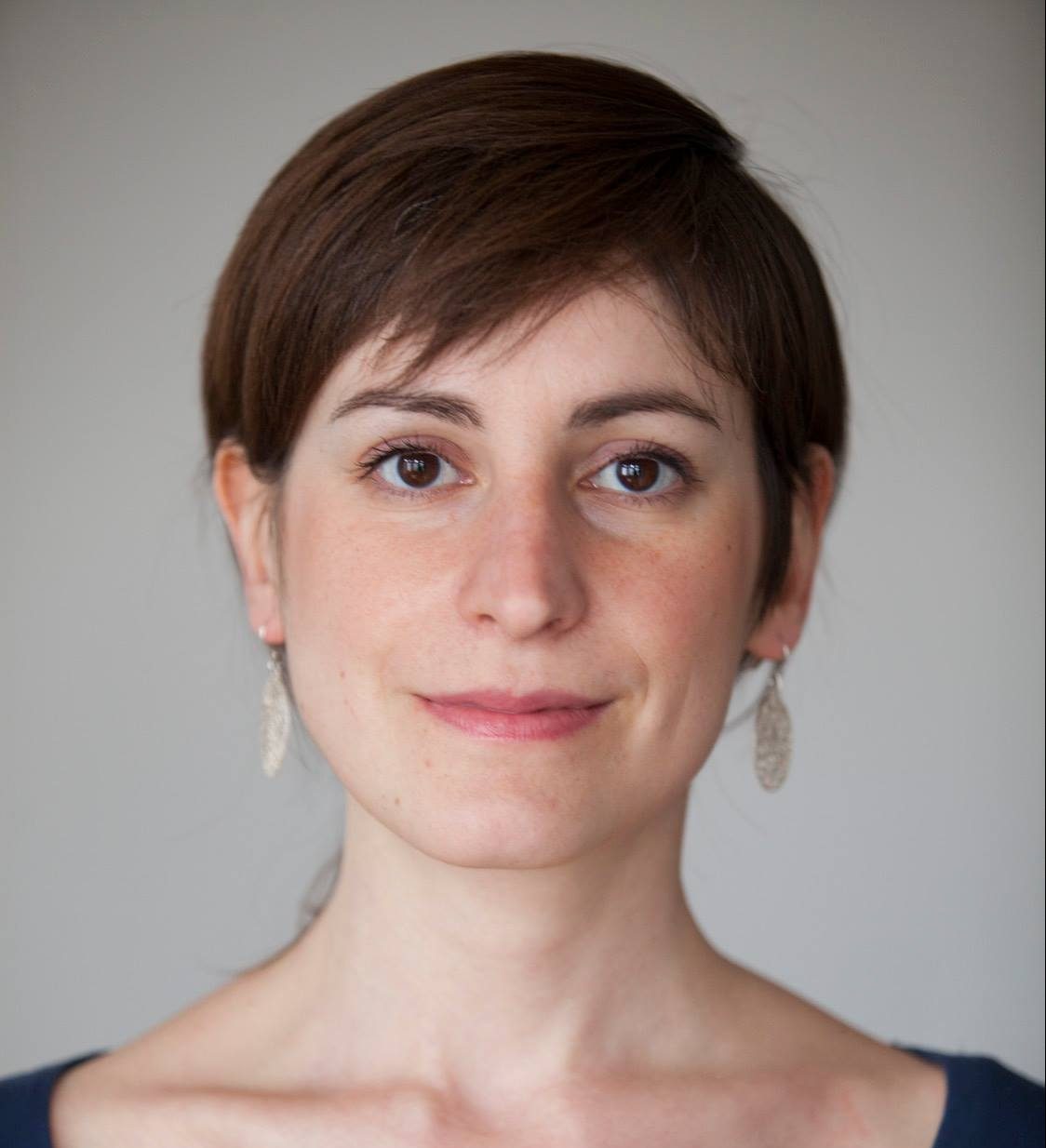 |
Giulia Levi, Faculty of Health & Social Sciences
Research topic: Between silence and agitation. Coping strategies and third-party interventions in divided societies: a comparison between post-conflict Bosnia and post-referendum UK. Why I chose this topic: The Brexit referendum has favoured the emergence of new lines of division in the British society. After years working in civil society organisations operating in divided contexts I have seen how initiatives to bridge societal divisions often apply standardised models overlooking the specificities of the contexts and of the people they work with. My project looks at how such initiatives are experienced by beneficiaries in order to develop a more socio-culturally sensitive approach. Example of how research at BU has changed things for me: Since I started my PhD I’ve had the chance to participate in workshops and conferences, meeting researchers I could discuss my ideas with. As part of my research I am exploring the cultural diversity of Dorset collaborating with civil society organizations on the ground that work on hate crime prevention and victims’ support. Quick quote: ‘Every culture is always on a nomadic path’ (M. Engelke) |
BU’s ECR Network – Come to the pre-launch event on 25th April
 BU will be launching a new network for Early Career Researchers later in 2018
BU will be launching a new network for Early Career Researchers later in 2018
If you are an ECR* or interested in the development of ECRs at BU, please sign up to attend this pre-launch meeting to discuss your ideas and expectation of this new network. Priority will be given to ECRs in the first instance, but whatever your role at BU, please sign up as your input will be most welcome.
This session will take place at Talbot Campus on Wednesday, 25th April, from 13:00 – 15:00, with refreshments, but not lunch, provided. Please feel free to bring your lunch.
BU Staff – Reserve your place now!
*an ECR, in this case, is defined as someone who started their research career on or after 1 August 2013. This is the point at which they held a contract of employment of 0.2 FTE or greater, which included a primary employment function of undertaking ‘research’ or ‘teaching and research’, with any HE or other organisation, whether in the UK or overseas.
Pint of Science 2018: Tickets available now!
 We’re excited to announce that we are joining forces with Pint of Science again this year to bring science back to the pubs of Bournemouth.
We’re excited to announce that we are joining forces with Pint of Science again this year to bring science back to the pubs of Bournemouth.
Join us on the 14-16 May 2018 for evenings that’ll quench your thirst for scientific knowledge delivered to you over your favourite pint. This year we are exploring the fascinating topics of Beautiful Mind at The Four Horsemen and Our Body at Chaplin’s Cellar Bar. The full list of evening themes and the complete programme of talks are available to browse now here.
Fancy joining us? Well, you’re in luck! Tickets are available for the bargain price of £4, and are on sale at midday today from the Pint of Science website.
To celebrate the official ticket launch of Bournemouth’s Pint of Science 2018, join us at Chaplin’s Cellar Bar on Wednesday 18th April for the Half-Pint Pub Quiz. Gather yourself a team and come and show off your quizzing capabilities from 6:30pm. You could be in with a chance to nab yourself some amazing Pint of Science goodies!
#TalkBU presents… Coping with stress in changing health behaviours

 #TalkBU is a monthly lunchtime seminar on Talbot Campus, open to all students and staff at Bournemouth University and free to attend. Come along to learn, discuss and engage in a 20-30 minute presentation by an academic or guest speaker talking about their research and findings, with a Q&A to finish.
#TalkBU is a monthly lunchtime seminar on Talbot Campus, open to all students and staff at Bournemouth University and free to attend. Come along to learn, discuss and engage in a 20-30 minute presentation by an academic or guest speaker talking about their research and findings, with a Q&A to finish.
Often our New Year resolutions involve changing unhealthy habits in the coming year. But how many of us have actually managed to change our unhealthy lifestyle and maintained it? Changes can be stressful, but how one manages the change can potentially ease that stress and make the change more achievable, which can potentially impact our physical and psychological well-being.
In this talk, Dr Fiona Ling will discuss her research that centres around physical activity behaviour change, and the extended implications on changing other health habits and public health promotions in order to encourage a healthy lifestyle.
When: Thursday 19 April at 1 – 2pm
Where: Room FG04, Fusion Building
Register here to attend
Click here to find out more about our future and previous #TalkBU events.
Cafe Scientifique – We need you!
Have you been doing research that you are itching to share with the public?
Do you want to increase your public engagement and have fun doing it?
We are looking for two academics to fill our Cafe Scientifique spots in June and July. If you would like to get involved please email the Public Engagement team!
Check out the website to find out more about Cafe Scientifique.
Your ‘Timely Reminder’ – Get yourself booked in – don’t miss these Events!
Your ‘Timely Reminder’
Every year, the Research & Knowledge Exchange Office, along with internal and external delivery partners, runs over 150 events to support researcher development through the Research & Knowledge Exchange Development Framework (RKEDF).
Responding to your feedback and by popular request, below are the main events coming up over the next two months – please click on the event titles that are of interest to find out more and reserve your place as soon as possible:
APRIL 2018
Thursday 5th April – The BU Protocol of Academics Engaging with Business
Tuesday 10th April – Grants Workshop & Follow-up Bid Writing Retreat Day 1 of 2
Wednesday 11th April – STEAMlab 3: Industrial Challenges (N.B. This event welcomes non-BU attendees)
11th, 12th & 13th April – Writing Academy
Tuesday 17th April – Research Ethics @ BU
Wednesday 18th April – Open data and the need for research data management plans, Getting started on applying for research funding, Pre-award finances, BU processes for applying for funding and Quality approvals at BU
Thursday 19th April – International Funding – Working with ASEAN countries
23rd & 24th April –An Introduction to Statistic Analysis with SPSS (Intermediate Session)
25th & 26th April – MSCA IF bid writing retreat – 2 days
MAY 2018
Wednesday 2nd May – Introduction to the Royal Academy of Engineering – Visit
Wednesday 2nd May – EU funding outside Horizon 2020
Tuesday 8th May – Grants Workshop & Follow-up Bid Writing Retreat Day 2 of 2
Wednesday 9th May – Wellcome Trust- Visit
Wednesday 9th May – KTPs – an introduction
Monday 14th May – Fellowship Interview Training – Royal Academy of Engineering
Wednesday 16th May – Applying for funding from NIHR – an Overview of the Schemes Available (N.B. This event welcomes non-BU attendees)
Wednesday 16th May – Introducing and Evidencing Research Impact: the Basics
Thursday 17th May – Engaging with policy makers
Friday 18th May – Preparing impact case studies for the Research Excellence Framework: a workshop
Tuesday 22nd May – Writing Academy – Writing Day
Wednesday 23rd May – What is the Research Excellence Framework?
To see all the events within the RKEDF and the wider Organisational Development offering, please refer to the handy Calendar of Events.
Enhance your Impact in Preparation for the REF
The Research and Knowledge Exchange Office (RKEO) through the Research & Knowledge Exchange Development Framework (RKEDF) have a number of workshops in the coming  months to assist you in developing and enhancing the impact that you can make with your research, with particular reference to the REF.
months to assist you in developing and enhancing the impact that you can make with your research, with particular reference to the REF.
- Wednesday 18th April 2018 – Developing impact case studies for your REF panel: the good, bad, and ugly Panel B (UoAs 7 – 12 only) – 2.5 hour session (1.30pm – 4pm) Talbot
- Tuesday 24th April 2018 – Developing impact case studies for your REF panel: the good, bad, and ugly Panel C (UoAs 13 – 24 only) – 2.5 hour session (1.30pm – 4pm) Talbot
- Wednesday 2nd May 2018 – Developing impact case studies for your REF panel: the good, bad, and ugly Panel D (UoAs 25 – 34 only) – 2.5 hour session (1.30pm – 4pm) Talbot
- Wednesday 16th May 2018 – Introducing and evidencing research impact: the basics – 2 hour session (2pm – 4pm) Talbot
- Friday 18th May 2018 – Preparing impact case studies for the REF: Developing a REF case – 3 hour session (1pm – 4pm) Talbot (this workshop will be repeated on 24/07/18)
Please follow the links above to find out more and to book. You will then receive a meeting request giving the room location. Many of these events have input from external presenters; please ensure that you are in the room and ready to commence at the given start time.
If you would like to discuss impact outside these workshops, please contact the RKEO Knowledge and Impact Team.
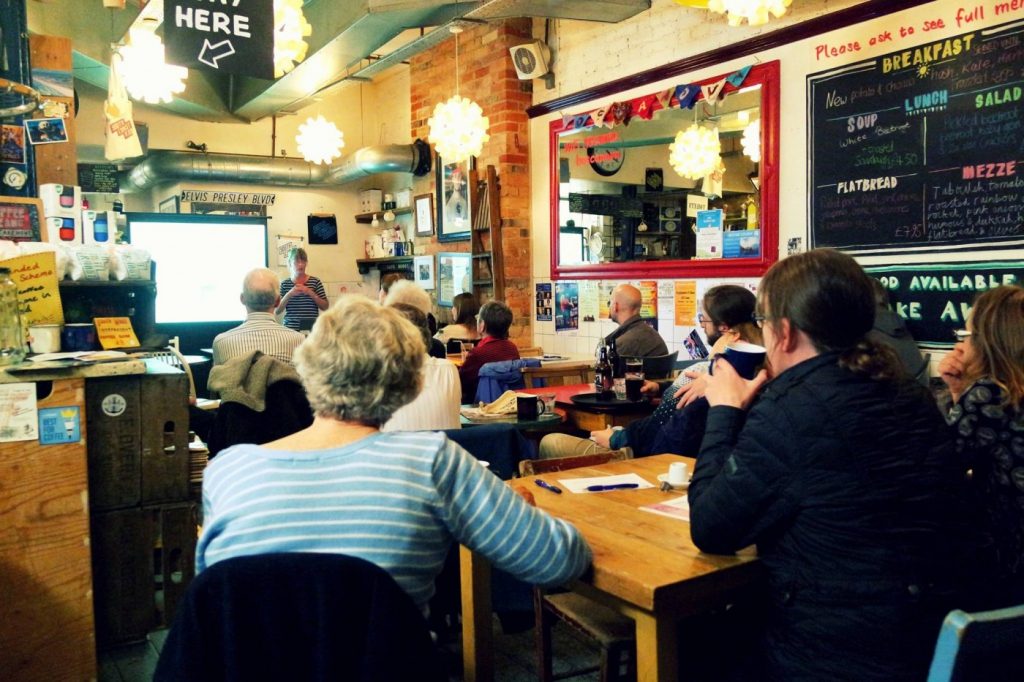












 FHSS academics teaching in Nepal
FHSS academics teaching in Nepal New weight change BU paper
New weight change BU paper One week to go! | The 16th Annual Postgraduate Research Conference
One week to go! | The 16th Annual Postgraduate Research Conference Geography and Environmental Studies academics – would you like to get more involved in preparing our next REF submission?
Geography and Environmental Studies academics – would you like to get more involved in preparing our next REF submission? Congratulations to three former BU staff
Congratulations to three former BU staff MSCA Staff Exchanges 2024 Call – internal deadline
MSCA Staff Exchanges 2024 Call – internal deadline Applications are now open for 2025 ESRC Postdoctoral Fellowships!
Applications are now open for 2025 ESRC Postdoctoral Fellowships! Horizon Europe – ERC CoG and MSCA SE webinars
Horizon Europe – ERC CoG and MSCA SE webinars MaGMap: Mass Grave Mapping
MaGMap: Mass Grave Mapping ERC grants – series of webinars
ERC grants – series of webinars